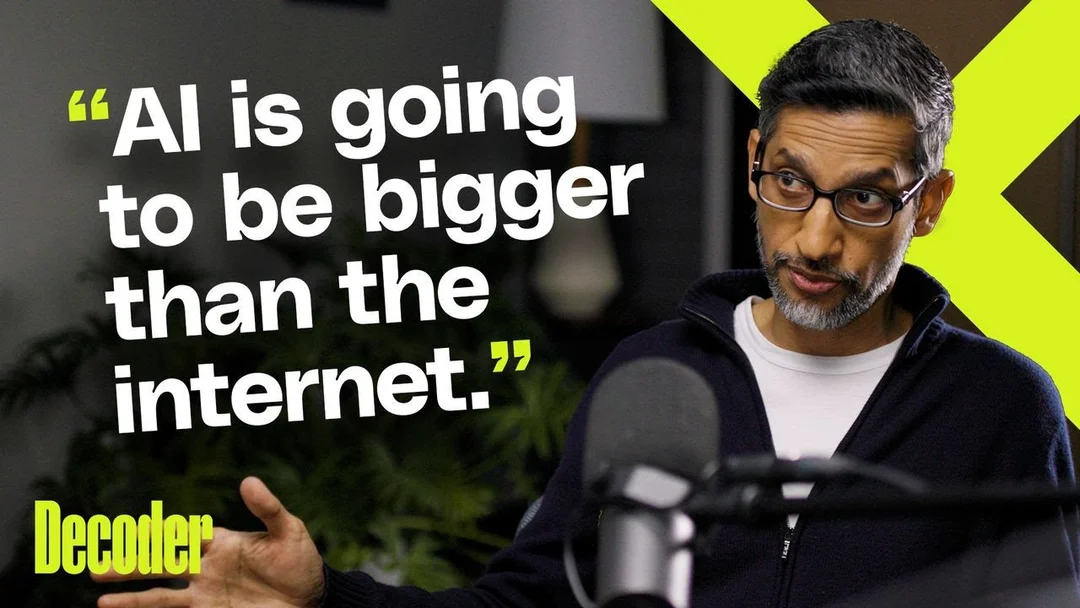
Google CEO Defends AI Overviews Amidst Controversy: Are They Helping or Hurting the Web?
Google's CEO, Sundar Pichai, is facing increasing scrutiny over the impact of AI Overviews on the web ecosystem. In a recent interview, Pichai defended Google's AI-powered search features, claiming they actually increase traffic to a wider range of websites. But is this really the case, or are AI Overviews crushing businesses and reshaping the web as we know it?
Pichai insists that Google cares about the web ecosystem and that AI Overviews are designed to provide users with more context and send them in the direction they want to go. He stated that the breadth of websites receiving traffic from Google has increased over the past year and expects this trend to continue with the adoption of AI Mode.
However, this claim was immediately challenged by the interviewer, who pointed out that if Pichai's assertions were entirely true, there would likely be less anger and criticism directed towards Google. The News Media Alliance, representing major news publishers, issued a scathing statement, calling AI Mode "theft" and arguing that it deprives publishers of traffic and revenue.
The Rise of AI Agents and the Future of Customer Relationships. One of the key concerns raised in the interview revolves around the emergence of AI agents that research and make purchase decisions on behalf of consumers. Some merchants fear that this will erode their ability to upsell or develop customer relationships, as AI agents don't engage in the same way as human consumers.
Pichai likened AI agents to credit card companies, suggesting that they represent a cost merchants are willing to pay to increase business. He also floated the idea of consumers paying subscriptions for AI agents, with revenue sharing models that could benefit both consumers and merchants.
Is the Web Ecosystem Growing or Shrinking? Pichai also addressed concerns about the "downstream" effect of AI Search and AI search agents on information providers. He claimed that the number of web pages in Google's index has grown by 45% over the past two years, attributing this growth to human-generated content, not AI. However, he struggled to answer when directly asked if Google detects or accounts for AI-generated pages in the crawling process.

Furthermore, Pichai acknowledged that people are consuming information in a broader range of formats, including video platforms like YouTube. He argued that AI will make it easier to move between different formats, seamlessly translating content between languages and media.
Transparency and Public Data. One of the key questions raised is whether there's public data available to support Pichai's claims that AI Overviews and AI Mode send more traffic to websites. While Pichai maintained that Google is sending traffic to a wider range of sources and that the referral traffic is of higher quality, he did not provide specific data to back up these assertions. This lack of transparency continues to fuel skepticism and debate about the true impact of AI Overviews on the web.
The interview highlighted the complex and evolving relationship between Google, content creators, and the web. While Pichai paints a picture of a growing and dynamic web ecosystem, many publishers and businesses remain concerned about the potential negative impacts of AI-powered search on their bottom lines. The debate surrounding AI Overviews is likely to continue as Google refines its AI features and navigates the broader implications of AI on the future of the web.
What do you think? Are Google's AI features prioritizing sending traffic to websites, or are they inadvertently crushing businesses? Leave your thoughts and opinions in the comments below!